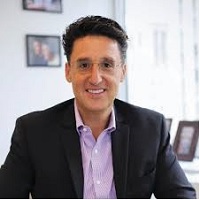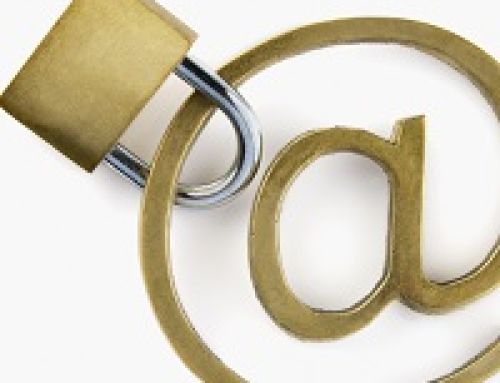Jasbina Ahluwalia interviews Steve Herz
A few topics Steven Herz addresses in this interview are:
- (01:49) Finding Good Advice in Harsh Truths
- (04:38) Rising to Success by Looking in the Mirror
- (06:41) Discovering What You’re Passionate About
- (11:11) Authority, Warmth, and Energy: the Keys to Communication
- (14:14) Showing True Warmth in Interactions with Other People
- (18:57) Using a Sense of Wonder to Exude the Right Kind of Energy
- (23:49) Applying AWE to your Partner Search
_____
Jasbina:
(00:38) Hello everyone, and welcome to Intersections Matches Talk Radio, a show for people who resonate with Mahatma Gandhi’s quote; learn like you’re going to live forever, live like you’re going to die tomorrow.
This is Jasbina, your host, and the founder of Intersections Match, a global profile matchmaking and coaching company for successful and commitment minded singles. We’re always on the lookout for empowering resources to support people in transforming their lives.
To that end, I’m very excited to welcome to today’s show, Steve Herz, author of the highly acclaimed; Don’t Take YES for an Answer, using authority, warmth and energy to get exceptional results. President and founding partner of IF management, an industry powerhouse that is represented and coached dozens of sports, media and entertainment leaders over the course of nearly three decades. He’s a frequent contributor on CNBC, CNN, and Court TV, as well as served as a guest lecturer at NYU School of Continuing Education. Welcome, Steve.
_____
Steve:
(01:49) Hi there. Thanks for having me Jasbina, I’m happy to be here.
Finding Good Advice in Harsh Truths
Jasbina:
(01:53) It’s a pleasure to have you, let’s jump right in. Having packed your book with insider anecdotes from some of the most well-known leaders in sports, media and entertainment, who you’ve coached, would love to start by you sharing one of your favorite anecdotes with our listeners.
Steve:
(02:12) I guess I’ll start off by saying it kind of leads into why I call my book; Don’t Take YES for an Answer.
It’s an anecdote that comes right out of the very beginning, where I’m in a law school and I’m actually done with my second year of law school, I’m working for a big law firm in Manhattan.
The summer is about to end and you find out if you’re going to get a job offer after the summr and the managing partner of the firm, Curtis Mallet-Prevost, takes me into his office and says that I’m not getting an offer and I really do not have what he thinks as the right skills to become a lawyer, and that I should not even finish law school, I should drop out. Certainly I was expecting a yes to the answer if I was going to get an offer and continue to law school. I was at Vanderbilt at the time.
It was a pretty big punch in the gut, so to speak, but I respected this guy. His name is Turner Smith, and it was really the best advice I ever got from anyone, and I think it’s really about trying to be able to look in the mirror or look at yourself if someone else is kind enough to point out something that seems very harsh or something that you could improve upon rather than just live in this… What I call an echo chamber of yes, where everyone tells you what you want hear and you kind of move along in your life and often don’t reach anywhere close to your potential because of that, or you end up doing something that you’re not really well suited for.
That was something that really changed the course of my life at 25, thanks to the cruel kindness of… It wasn’t cruel at all of course, but everyone always says you got to be cruel to be kind, so he certainly was kind.
Jasbina:
(03:55) Echo chamber of yes. Actually I love that term. I think that is so important. I know that we work with so many people who have yeses all around them, and it’s being the one person who’s like, “Well, hold on a second.” And having you kind of check yourself, it can be highly valuable, that kind of truth serum that can be far in between when someone reaches a certain level. That is fascinating.
Is that what inspires you to write; Don’t Take YES for an Answer?
_____
Rising to Success by Looking in the Mirror
Steve:
(04:38) It was definitely part of that, but it was also just… I’ve made a lot of observations in my life about other people, about myself, and I was able to see over the last 30 years… It’s almost like a test tube of life.
You have a control group of people where you know there’s one group of people that you observe around you, and we all do this. We see those people who are really successful and kind of figure it out and do well and get to the top of the heap so to speak.
And then other people stagnate and they end up plateauing. Often, the people that you think shouldn’t be plateauing are the ones plateauing, and the other group that maybe shouldn’t be going to the top are the ones that are.
I asked myself, “If all these people seem very similar in many respects…” Because they were, well educated, motivated, they were hardworking, they showed up on time. “Why was one group of people doing so well and the others weren’t?”
I thought that it really boiled down to this idea of one group was taking yes for an answer and the other one wasn’t.
One group was studying themselves up to never look in the mirror, so to speak, to improve and find out what are the internal factors rather than the external factors that were holding them back instead of blaming things on everything outside of their own control, because we all are going to be hit with things that are outside of our control, but that’s not really the operative focus. It shouldn’t be at least because variables are variables and if you can control what you can control, which sounds tautological I know, then at least you have a chance. That was the inspiration for the book and the title.
And then as we’ll get into, I’m sure later in the podcast, the second part of why I wrote the book is because it was those people who not only had the ability to want to get better, but it was also those who made a better impression on others and the aggregation of all the little impressions they had in their lives, and how that added up to a greater degree of success for them.
_____
Discovering What You’re Passionate About
Jasbina:
(06:41) I want to circle back to the advice you got after that summer in your second year of law school. At the time, crushing moment you received it. This is again speaking to clearly you are in the example of people who didn’t accept that plateau in terms of didn’t plateau.
What was your choice point at that point in time when you… Maybe not the second you received that feedback, but at some point thereafter, that you think puts you on a different track in terms of; okay, I’m not plateauing here. What was the choice point for you?
Steve:
(07:37) Like you said, it wasn’t immediate, but I went back to law school, went back to Nashville from New York in that month of August, and went back to school for my last year.
I think my mind had shifted, and I went from being a guy who was kind of on the same treadmill as most of the other students down there who are looking for legal related jobs, whether it was going to be at a law firm or at the DA’s office or the public defender or trying to get a clerkship.
All those aspirational goals that were in the four walls of being a lawyer, those went out the window for me, and I started thinking really outside the box of a lot of different things.
I wrote some advertising copy and there was a guy a year below me in class whose father was an Ed-Exec for a big advertising agency, Saatchi & Saatchi. I put together an ad booklet to try to pitch myself as a copy editor, copywriter. I started to work on getting involved.
I thought about trying to get into the sports field, and had worked at the University of Michigan where I went to undergrad for the sports information directory department at Michigan and wrote for the school newspaper, started thinking about jobs in that space.
Believe it or not, I had an idea for a fat free potato chip that I kind of invented while in my last year of school. I was thinking very outside the box because I knew that being a lawyer wasn’t for me.
Turner Smith was right. My skills were not suited to sitting in an office and litigating legal cases or writing contracts. It just wasn’t. He said to me on that afternoon when he said, “Don’t go back to law school.” He said, “You’re a salesman. Do something in sales and come back here as a client, build a business.” And that really impacted me. My shift in thinking was complete, almost immediate.
Jasbina:
(09:38) That really caused you to tap into passion, right? Imagine sports and some of the other things you mentioned, actually you have to take a look at yourself and say; what am I if it isn’t sitting in an office or litigating?
What is it that I could be passionate about, that I couldn’t really put everything behind? And you’ve identified it. That is inspiring. I have to ask, did you ever become a client of Turner Smith?
Steve:
(10:11) It’s funny, I didn’t ever become a client. Curtis Mallet is a very, very good law firm and they have very big time companies. I’ve always been a small business owner, and frankly probably couldn’t afford going to Curtis Mallet, but happy ending to the story is that Turner and I didn’t see each other for 30 years. And on the run up to this book, when I got a galley copy from my publisher, Harper Collins, I sent a letter with a galley to Turner Smith just thanking him.
We had no communication all these years, thanking him and telling him that he was the inspiration for the book and a lot of what’s good has happened in my life. He was really touched by it and he wrote me back an incredibly nice note.
Before the pandemic happened, he took me to lunch at the Yale club, where he’s a graduate, and we reconnected 30 years later as if no time had gone by. He was as great a guy as I remembered.
Authority, Warmth, and Energy: the Keys to Communication
Jasbina:
(11:11) That is amazing. I’m glad you circled around and shared that piece, because back in my head I was like; when you became such a huge success with the company that you do run, did you circle back to him and give him that thank you? So it sounds like not quite then, but when you wrote this book, you closed the loop. That’s really inspiring.
I know you mentioned first impression, your book dives deep into what you’ve identified as the three key communication traits, which people respond to most. I know that Turner Smith said you were a great salesman, so I imagine this is very connected with that, but tell us about what those three communication traits are.
Steve:
(12:01) For me it’s based on a study that I found when I started writing the book about how only 15% of your success is correlated and causative related to how good you are at the actual job that you do, technical parts of it, and the 85% comes down to non-technical things.
What I’ve identified is; your authority. Whether you are or you aren’t, do you come across to other people as someone who knows what they’re talking about? Do you come across with a level of confidence that convinces the other person that you should be in a professional relationship with them? I use the example of a dentist in the book, who is great at his job technically but communicates so poorly that he doesn’t have any authority around himself.
It’s your voice, your body language, your presence, the way you dress, your physicality, lack of filler words, rate of speech, that all and many other things contribute to whether or not people think you do or don’t have authority. That’s one.
The second trait is warmth, and it’s really a synonym for trust. It’s connection. Again, if you don’t trust someone, if you don’t feel connected to someone, you don’t want to be in a relationship with them professionally or personally for that matter.
So I think that warmth is; are you making the other person feel acknowledged? Can they connect with you? Do they feel like they know you? Is there a sense of vulnerability to you? That all contributes to warmth.
And then the last piece is energy. The question is; are you the type of person that people want to be around? Do you have a magnetic quality about yourself? If you do, great, then you’re energizing other people. And if you don’t, then often, not only aren’t you energizing people, but you’re deflating them and they want to get away from you.
You could have high energy, be very deflated, or you could actually have some relatively low energy about yourself, but be actually energizing because you make people feel so welcome by being so welcoming to them. That’s the question I think people should be asking themselves, do they have what I call AWE, A-authority, W-warmth, E-energy.
Showing True Warmth in Interactions with Other People
Jasbina:
(14:14) Warmth is so very important in establishing that connection, and interesting in a world where we’re at an interesting point in the economy at this point. There’s an argument for a lot of things can be done by AI, and now I think one differentiator that cannot be done by the AI is this warmth, this connection. So it seems so pivotal.
I know there are a myriad of practical techniques that you have in your book with respect to helping somebody really fine tune their ability to convey warmth in their personal, professional life, what have you.
Can you share just one or two of those many techniques that you have for our listeners, so they can understand that there could be a learning curve but it’s attainable for people.
Steve:
(15:21) I could, but I don’t really have to because you just did it. You did a really good job of it right there. So I would say that:
- being interested in other people, as you just were,
- following up with a question relative to something somebody else just said, as you just did by asking further details on warmth,
- being emotionally committed to the conversation in your tone of voice, and
- being sincerely interested and curious about someone else as you just did in the last 30 seconds.
You just killed it, you nailed it. You did a great job of expressing the deep dive qualities of warmth. Those techniques that you just used, I would tell your listeners to follow your cue.
Jasbina:
(16:08) That is kind of you. There are lots of practical techniques in this book, so go ahead and implement. Like everything else, it’s a matter of practice. It’s reading and looking at examples, and speaking of examples…
There are many success stories and there are many stories and anecdotes in this book that really can help take a skill and really amplify it, and understanding by seeing an example of someone actually implementing. I would love, if you would share a favorite success story of one of your clients who implemented any one of the techniques with respect to warmth.
Steve:
(16:59) Do you mind if I don’t use a client and I choose myself? One of the things that was really interesting about writing this book and doing a lot of research and interviewing a lot of different people is that I put a lot of people on tape, and my wife was really helpful in terms of just listening to a lot of this stuff and watching me.
You learn along the way; by the way, I’m writing this book for other people, but actually I need it too, because I have a lot of flaws here as well. One of the flaws that came out was this bad habit that I had of folding my arms a lot when I’d be talking to people in a meeting or at a cocktail party, or birthday parties, whatever it might be. I just had this really bad habit that I was not aware of, of folding my arms all the time when I would talk to people.
So she said that to me and I took that advice and implemented one of the techniques that I was using for other things for people, which is I started going to parties and whatever, and would be very aware of who else in the room had their arms folded. By seeing someone else folding their arms, I would stop folding my arms. Over time relatively quickly, I stopped that habit.
What happened is, I was giving off a really bad vibe to people, because I’d be having this very closed down body language in front of them. And by being able to implement the technique from the book, and someone had pointed it out to me, which is also a key part of all this, I was able to exhibit a little bit more warmth in my own life.
That’s just kind of a microcosm of I think these little small changes we can make that can help us present better in the world. Remember I said it’s an aggregation of small little impressions over time really have an impact on our trajectory.
Using a Sense of Wonder to Exude the Right Kind of Energy
Jasbina:
(18:57) Will you share with our listeners just one technique, this energy. It’s so very important in terms of reverberating and it affects everyone you’re dealing with. The energy that you’re actually exuding and the impact it makes on everyone around you.
Tell me, any favorite technique you can share with our listeners with respect to really helping them exude the kind of energy that will serve them well, as well as really everyone around them.
Steve:
(19:39) I think it has to do with a different kind of awe. It’s not the acronym AWE in my book, but more of the awe of life.
I think you have to develop, internalized a sense of all for your existence in this world, to be honest with you. I think you have to have a sense of curiosity, a deep desire to learn about other people and learn about things that others can share with you. I think there is an energy to be gotten from that.
If you aren’t curious, really curiously interested in other people, and other things, and what people have to share with you, then you’re going to come to the table with a very blasé attitude. There’s going to be awe in you, but if you have a sense of awe and you’re awe struck by things and you really love learning, then you know you’re able to really bring that energy to the table.
Conversely, when you’re the one doing the sharing, if you have something to share, obviously like I do today, you have to feel a sense of awe that you learned something and that you’re lucky enough to teach it to other people, that it can help most.
I think I used some really good examples in the book of one who is a professor I had in law school Gary Friedman is now at NYU, who comes to the table as a law professor and teaches some of the most mundane, dry, almost boring, if you will, topics of criminal constitutional procedural law in federal courts and things that are really dry.
The curtain goes up essentially when he teaches class, and he just sucks you in to the passion and the curiosity and the interest and the feeling that he has, and he uses his body and he moves around the classroom and he heightens his voice and lowers his voice. He’s yelling and then he’s whispering, and he’s got you at the edge of your seat. Every single class becomes like a whodunit mystery series, you know what I mean?
And he had this tremendous sense of curiosity about the topic, and because of that he’s exuding energy in himself and he’s exuding so much energy in the room, and bringing it out in other people. I talked to him a lot about this book and a lot about him because he had a big influence on me, as did a lot of other professors.
It’s just something that I think is very transferable from one medium to the other. It’s not limited to talking in front of 100 people, it’s something you can do in front of a group of one. By the way, just the last point, he seems to really enjoy his life. He’s happy, he’s committed, and there’s something really great about that, that energy brings to him a real joy in his life I think.
Jasbina:
(22:19) Like I tell people, that’s a party you want to join, right? Somebody who exudes that. And I bet, from another perspective he seems like a master teacher in that sense, and you probably remember more about that particular core subject then, than possibly some others. He made such an impact with it, and it’s almost like even if you probably weren’t that excited about the subject matter, you became so. Would that be right? That should be my guess; that you actually probably remember more about that one.
Steve:
(22:59) Yeah, 1000%. Here’s the beauty of life. I think, if you allow yourself to have awe, the other awe, the sense of wonder, is that just about everything actually is interesting.
There are people out there who spend their entire life studying birds and find it fascinating. I don’t know anything about birds, but I bet if you made me learn about birds eventually, I’d find it interesting. Or there are people that study woodworking. There’s thousands and thousands of crafts out there that people find really interesting.
I think if we allow ourselves to be curious about these things, almost everything can bring energy to us, if we have a sense of wonder about it.
Applying AWE to your Partner Search
Jasbina:
(23:49) I’d say if you are bored on a day, you’re probably being boring. I’m going to dovetail, I happen to know you’re a happily married man and clearly your wife supported you with the taping and really bringing to your attention about the tweak that was so impactful for you in terms of the closed body language.
As a happily married man, what insights might you share with our male listeners? Let’s start with the males, regarding applying AWE in their partner search? As well as maintaining a great relationship. Both in their search, as well as maintaining that. How can they apply the lessons in your book?
Steve:
(24:54) I’d say a couple of things. One, when I say the book is called; Don’t Take YES for an Answer, and I say try to seek out feedback from other people, I think that what you really want to do is have what I would call… aggressive humility in your life.
Hey, you’re not perfect. There are things you could do better at. By the way, if you’re lucky, this will be for the rest of your life, because you’ll have an opportunity to get up every day and improve upon something.
Nobody should ever think of themselves as a finished product. And if you have this level of aggressive humility about yourself and understand that you’re not perfect, that you could be better, then I think your own mindset about yourself isn’t so arrogant, and you’re not thinking that you’re so perfect.
I think a lot of relationships don’t work out or don’t get off the ground especially in the early stages because we’re too critical of other people and not critical enough of ourselves. We see all these little flaws in someone else and not enough flaws in ourselves. And if we realize also what we’re focusing on is ridiculous.
The flaws that we’re thinking that other people have, kind of best exemplified in a lot of the Seinfeld episodes and Curb Your Enthusiasm, that these are the wrong things to be focusing on. I just think that mindset could help.
And then the other thing is, to the extent that you’re not winning over your audience of one on your dates. I’d say again, “Look in the mirror. Do you come across with authority? Do your dates take you seriously? Are you a serious person in terms of what you’re communicating in that moment? Are you warm? Do you show a sense of vulnerability? Can people get to know you?”
Every date is different. Every person’s different, so it’s hard to give kind of these blanket rules about these things, but just try to do the best you can to understand where and how you’re not connecting with other people.
And are you energizing someone across the table or not? Ask your friends. Look, I think if you’re not having the kind of luck that you want to have or success you have in that area, it’s probably one of two things.
- Either you’re not making the right impression, or
- you’re overstating yourself, and your standards might be too high relative to your own imperfections. I don’t know. I’m not a matchmaker but I’m trying to…
Jasbina:
(27:23) No you aren’t, but you know what? Here’s the thing, because you do what you do, and you seem to intuit how important feedback is. One of the key components of the matchmaking process is providing feedback, and so then the nature of the feedback you discuss in your book and you help people to take in a similar way that you took that years ago, to take that feedback and create opportunity from it, and course correct in a way that is highly impactful. It’s empowering actually.
And so I love the term aggressive humility and really what that allows everyone to be is vulnerable, which again circles back to all of this. So it really comes full circle.
I understand the book; Don’t Take YES for an Answer, it’s not even available yet. Can you share with them how they can pre-order a copy of it so they can start reading when it’s published? Is it mid-June, is it June 16th? Published by Harper Business?
Steve:
(28:43) Yes it is. It’s June 16th, by Harper Business. There’s a very simple way they can do that. If they go on www.steven S-T-E V-E-N-H-E-R-Z.com stevenherz.com, and there’s just one button that you can pre-order it on a myriad of places, Amazon, Barnes and Noble. Obviously you can go to your local bookstore and pre-order it, but they can also follow me on Twitter @stevenherz or on Instagram @steveherz66, but if they just go to my website, stephenherz.com, all those resources are there for them and they can learn more about me, although they’ve probably learned more than they want to know as of now, and then we can hopefully engage them that way.
Like you said, I think this book, the reason I wrote it largely is because I think it offers something to other people and I hope people are going to benefit from it.
Jasbina:
(29:36) It sounds like it could help in all different areas from professional to personal and it is really fundamental. Some really fundamental stuff that is, like you said, making those small tweaks for high impact, which is what we’re all looking for.
I think you make really great points in that we all can get a level of technical proficiency. If we can all get to that 15%, but wait a minute, what can we do to increase our efficacy with respect to that 85% which is what really makes the difference between who is plateauing and who is not.
Steve:
(30:15) Exactly.
Jasbina:
(30:15) Thank you. Really appreciate you sharing your valuable insights with us.





